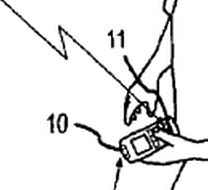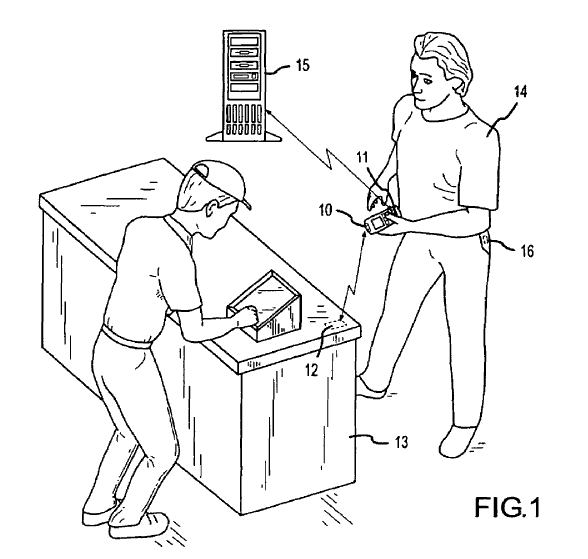Editor’s note: Leonid (“Lenny”) Kravets is a patent attorney at Panitch, Schwarze, Belisario and Nadel, LLP in Philadelphia, PA. Lenny focuses his practice on patent prosecution and intellectual property transactions in computer-related technology areas. He specializes in developing IP strategy for young technology companies and blogs on this topic at StartupsIP. Follow him on Twitter: @lkravets and @startupsIP.
This afternoon, Google was sued over its Google Wallet smartphone application allegedly infringing U.S. Patent No. 7,298,271 (the ‘271 patent) in the Federal District Court of Delaware. According to Google, “Google Wallet is a virtual wallet that securely stores your credit and debit cards, offers, and rewards cards. You can tap your phone to pay in-store using Google Wallet anywhere contactless payments are accepted. You can pay online by signing into your Google Wallet account.” Of course, there is nothing new about payments using NFC technology, NFC has been popular in Japan for years. What’s interesting here is the actual patent being asserted against Google.
The ‘271 patent is entitled “Method and apparatus for providing awards using transponders.” The patent was filed Sept 19, 2005, and issued on November 20, 2007. The plaintiff in the lawsuit appears to be the inventor listed on the patent, Peter Sprogis. There is no assignment information recorded at the U.S. Patent and Trademark Office to determine if the patent may have been bought by another entity.
Figure 1 of the patent is reproduced below:
Here is what appears to be the broadest independent claim in the patent:
33. A system for encouraging customer patronage by providing awards to customers comprising:
(a) one or more electronic data storage elements containing identifying information;
(b) electronic data storage element readers capable of reading said identifying information from said electronic data storage elements;
(c) an awards processing center that provides awards to one or more participant(s) in an awards program when said participant transmits the identifying information from said electronic data storage element to the awards processing center.
As in claim 33, each of the other independent claims of the patent appear to require providing participants with “electronic data storage elements” or readers, and each requires presenting “awards” to the participants. The specification describes an award as a “merchandise coupon or redeemable points.” Based on my initial review of the Google Wallet website, I did not find any awards being provided by the Google Wallet program. Google only states that “[y]ou may earn reward points for purchases through your card issuer’s credit or debit card rewards program (such as gas, grocery, and restaurants purchases, overall spending, and purchase protection or insurance), if applicable…. Your card issuer (not Google Wallet or The Bancorp Bank) determines and is responsible for whether rewards points or other benefits apply to these purchases.” Therefore, it will be interesting to see how the plaintiffs are interpreting the claims, in order to determine if this case has any legs.
Whether this case goes anywhere right now or not — and the timing appears to be odd, with the technology still struggling to take hold in the U.S., this appears to be a clear sign that patent litigation will expand into the mobile payments space as adoption of the mobile payment technology increases.

